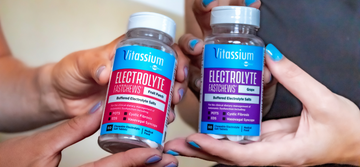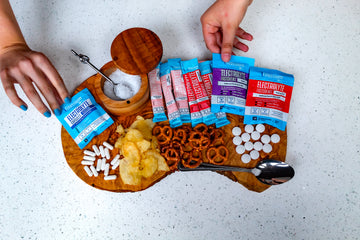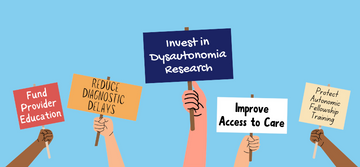
This guest post is authored by Amber Nicole of Clearly Alive. Comments belong exclusively to the author and do not necessarily represent the view of Toker Engineering, LLC or the SaltStick brand.
Today’s healthcare world is confusing, unnecessarily complex and exhausting. I speak from much experience in the US healthcare system, but I have friends across the globe each with their own struggles as well. It is difficult to be an advocate, but it is also required.
Throughout the years, both my mom and I have discovered tips and tricks that help make navigating this system easier. Below are four tips for advocating for yourself or a loved one in today’s healthcare system.
1. REMAIN CALM
Be mindful of letting your passion show. This seems like an odd way to start out an article for how to advocate for yourself in today’s healthcare, but it is an extremely important piece of advice. I am incredibly passionate about remaining Clearly Alive. However, when I am in a doctor’s office / speaking to nurses / navigating through an emergency room, I try to purposefully speak monotone and with a lack of emotion. I share just facts, curbing my passion.
Unfortunately, passionate speech can come across to medical personal as emotional, irrational, or even a bit unstable. What my mom and I have found from first-hand experience is that when this happens, they tend to tune you out completely and label you as the “unstable, emotional individual.” Your passion in advocating for the best possible care for yourself or someone else is completely justified. But it is not always effective.
Practical Application
- Before any appointment, create an agenda of what you would like to accomplish.
- Practice the key talking points aloud, paying careful attention to the tone of your voice.
- Bounce ideas off other trusted individuals and ask for their feedback. Did you get your point across? Were you too emotional?
2. HAVE INFOGRAPHICS READY
In today’s information overloaded world, it is often helpful to be able to explain complex concepts quickly with the help of flow charts and pictures. Many rare disease advocacy groups provide such materials. If you cannot find one that suits your specific needs, create one.
For adrenal insufficiency, I commonly use resources from either Adrenal Insufficiency United or Addison’s Disease Self Help Group. Readers with dysautonomia may find this POTS cheat sheet from Dysautonomia International helpful.
3. MANAGE EXPECTATIONS
If you expect the medical field to take care of you or your loved one with little effort on your part, you are going to be incredibly disappointed. You must manage your expectations. Even the best team of specialists are unable to solve all your problems without your active involvement.
You are the expert at living with your disease. Or perhaps, you are the expert at helping a loved one manage their disease.
It is helpful to view your healthcare team as partners with whom you can discuss ways to best manage your health, or your loved one’s health. Do not expect medical providers to know everything about your conditions, and do not judge them if they know less than you.
Practical Application
- Seek not the smartest in the field, but rather seek out the one with whom you work best.
- Understand that lack of knowledge is not necessarily lack of intelligence. Search for those that are willing to learn and partner with you.
- You are in charge of your own health. You enlist medical providers to partner with you.
4. REMAIN CLEARLY ALIVE
Constantly advocating for yourself or another loved one in today’s healthcare world is exhausting. I describe it as having another full-time job that carries a tremendous amount of risk, but also with true opportunities for a better life. Please make sure that you are giving yourself both the space and the freedom to acknowledge that what you are doing is hard.
Seek out support. If your surrounding family or friends are unable to provide you with the support you need (which is ok!), turn to rare disease communities, online groups or even ask your local medical providers if they have any resources available for you.
May the beauty of community empower you to be the best advocate you can be.
And may you always remain Clearly Alive.







